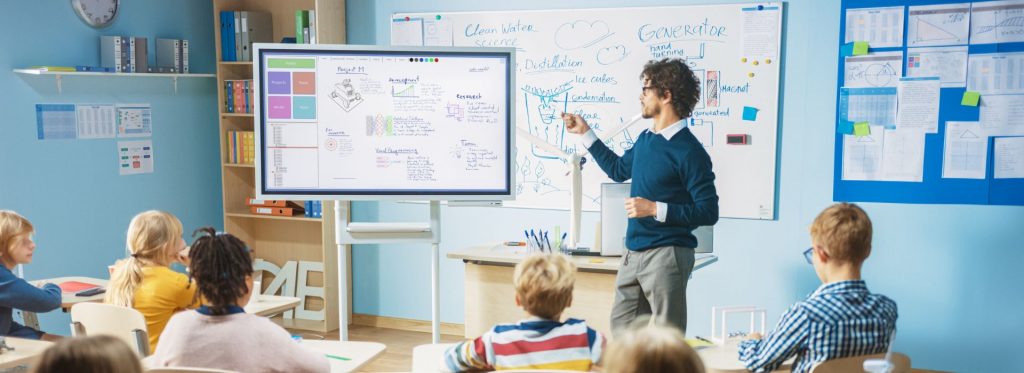By Tim Potter, Managing Director UK & US
As the world slowly begins to return to a new normal, the changes and restrictions thrust upon us over the past couple of years, have caused us to reflect on our priorities and consider which of these changes we expect to keep for the long-term.
Working life is certainly one of the biggest areas that have been impacted. Since COVID began, individuals and companies have been forced to adapt very quickly and find new, virtual ways of working in order to keep their businesses operational.
Only a couple of years ago, the thought of a whole company working remotely, with limited or no face-to-face interaction between colleagues and friends, would have seemed fanciful. The risk of a fall in productivity, disengagement amongst employees and losing a grip on a strong company culture and shared values deemed this style of working as impractical and unrealistic.
As so many countries are now through the long periods of lockdown and we learn to live with the virus, the discussion around what employees now want from their working life is a particularly hot topic.
Does the 9 to 5 office have a place in the future?
For many, the thought of returning to a pre-pandemic office environment seems hard to comprehend. Some find it difficult to believe that they ever managed the long and tiring commute into major cities to do the 9 to 5 every day, which could easily be done from home.
It has also opened our eyes to what is viewed as a great work-life balance. Long hours away from home and family, previously accepted as the norm, is now something that requires re-assessment.
To find out how people feel about returning to work, Pureprofile conducted a survey with 201 employed people in the UK to get their views on the matter.
- 40% of employees said that they would seriously consider changing jobs if their employer implemented a mandatory full-time return to the office.
- When it comes to returning to the office, 41% said that they would prefer a hybrid model of working, with up to 2 days in the office, with the remainder spent working from home.
- On the subject of flexible working, 80% said that having flexibility with their working hours was a key benefit that they would view very highly when considering a new position.
From our research, along with countless other reports and papers published on the subject of future working trends, it’s clear that businesses need to take this issue seriously. In order to attract and retain key talent, companies would need to consider offering flexible working as standard.
The benefits of adopting a more flexible work approach
From my point of view, it’s clear that whilst some employees have flourished and enjoyed the flexibility and freedom of working remotely, others have struggled with the isolation of being away from the office environment. The ‘one size fits all’ approach no longer works in companies that truly value their employees’ happiness and mental health ahead of results and output. Companies need to listen and consider what their employees have to say about their health and emotional wellbeing. Whilst, of course, ensuring that all practices are fair and meet the needs of all, it does seem out of touch that a business would risk the productivity and happiness of a top performing team member in order to enforce a rigid and outdated style of working, purely to get back to the way we ‘used to do things’.
One of the biggest challenges for any ‘people-first’ business to address, is what will the new normal look like in a post-pandemic world and how can they keep their workforce content, healthy and motivated to deliver results.
If I were to consider what the issues surrounding remote working would have been pre-COVID, I’d have expected that the team would’ve felt less connected to the company, as well as each other. However, the use of video-conferencing and the acceptance of virtual meetings has proven it’s easy and convenient to connect with colleagues, partners and clients and still sustain business performance.
Whilst this has allowed us to maintain a good workplace culture and ensure that employees don’t feel isolated or unsupported, it has certainly increased our internal communications via video calls. Though I view my calendar with a sigh at the start of the day as I contemplate how best to tackle the tasks ahead.
Embracing a remote working culture
If remote working is to remain a part of our future, it’s important to recognise how this form of working impacts our employees. Many find they are now working longer hours. Breaks, commute times and beyond are replaced by a need to stay on top of a heavy workload, given more of the day is spent on video calls with direct reports and colleagues.
One positive change that’s been introduced at Pureprofile in response to feedback concerning busy calendars, is “No meeting Wednesdays”. A small improvement to our schedules, but so
well received and of such benefit to all the team.
The trend towards more flexibility with working from home has been accelerated by the pandemic and companies have been forced to adopt new behaviours and technologies that are likely to stay. The shift to remote working also goes hand in hand with the reduction of occupied office real estate and the take up of flexible workspaces, changing the work landscape possibly forever. Adopting a fully remote or a hybrid working model, to make it sustainable and work for all employees, will be a challenge that successful and forward-thinking companies will overcome.
The working world will continue to evolve – it will be an exciting time and maybe, the past two years, awful for so many reasons, will bring a positive change to the millions of workers around the world.



